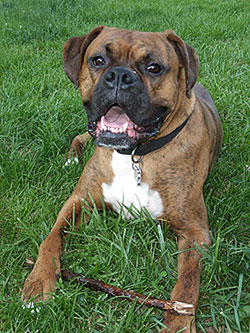
Preparing for Your Visit
As you prepare to bring your pet to the medical center, the following are guidelines to follow:
- When scheduling an appointment, please tell the receptionist about any medications that your companion animal is taking, some medications may need to be discontinued prior to your appointment.
- Please do not feed your companion animal for 12 hours prior to the appointment, unless it has diabetes or is a very young or small animal. Do not restrict water. Please consult a receptionist if you have any questions regarding fasting your pet.
Arrival for Your Appointment
Upon your arrival, check in with the small animal receptionists.
A senior veterinary student will meet you and take you to one of the available examination rooms. The student will obtain a complete history of your pet and perform a thorough physical examination.
After the initial physical exam, one of our doctors will perform a physical examination and may ask additional questions regarding your pet’s history and disease and will then recommend a diagnostic and/or treatment plan. Diagnostic tests are usually performed in the afternoon of the day of your appointment, although all testing may not be able to be completed the same day and diagnostic workup may have to be completed the following day.
Hospitalization
A permission form for the hospitalization will be provided, along with a cost estimate form.
Both forms will be taken by the small animal receptionists and copies will be provided to you. A deposit of 50 percent of the cost estimate is required at the time your pet is admitted to the VMC. The balance of the charges is required at the time of your pet's discharge from the medical center.
- The student or attending clinician will contact you daily unless you discuss other arrangements.
- Please feel free to call the reception desk at (515) 294-4900 if you need to reach the clinician or student.
- All surgeries are performed by clinicians of the Soft Tissue Surgery Service with the assistance of students and technicians.
At the time of release, the student and attending clinicians will give you instructions (verbal and written) regarding your pet’s aftercare, medications needed, and follow-up.
